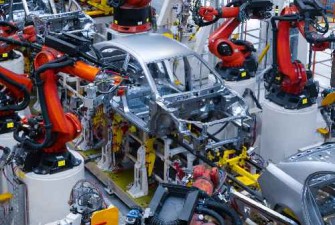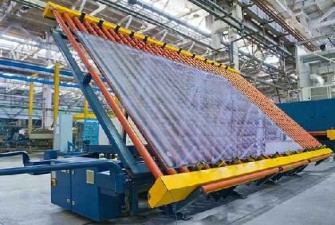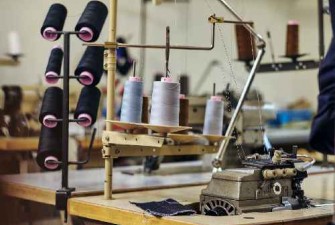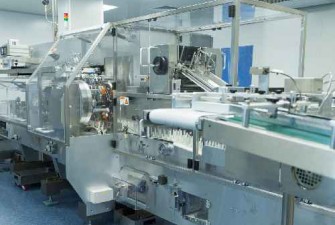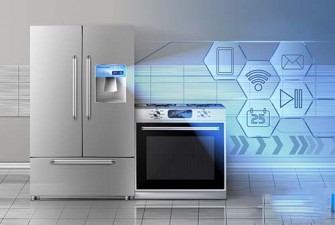Heaters Used in Various Sectors
- Automotive Industry: In the automotive industry, heaters are found in many components such as in-car heating systems, vehicle engines, and emission control systems.
- Food Industry: In the food industry, heaters are widely used in cooking equipment, ovens, fryers, and food warming equipment. This is important for properly cooking and serving food products.
- Chemical Industry: In the chemical industry, heating is required in many chemical processes and reactions. Heaters are used in heating equipment used in these processes.
- Plastic Industry: In the plastic industry, heaters are used in many production processes such as extrusion machines, injection molding machines, and thermoforming machines. These machines require heating to shape plastic materials as desired.
- Glass Industry: In the glass industry, heaters are used for heating in glass melting furnaces and shaping machines. These heaters provide the high temperatures required for melting and shaping glass.
- Wood and Furniture Industry: In the wood and furniture industry, heaters are used in drying ovens and pressing machines. They provide the heat required for drying, shaping, and pressing wooden products.
- Defense Industry: In the defense industry, heaters can be used in electronic devices, weapon systems, and vehicle systems. For example, heaters may be required for vehicle heating systems, electronic control panels, and sensitive devices.
- Aviation Industry: In the aviation industry, heaters can be used for aircraft cabin heating systems, engines, and in-flight electronic equipment. Additionally, heating equipment may be required for aircraft maintenance and repair.
- Metal and Machinery Industry: In the metal and machinery industry, heaters are used in many applications such as welding machines, metal shaping machines, and industrial furnaces. Heating is required for processes like shaping, cutting, and welding metal.
- Home Appliances: In the home appliances industry, heaters are found in many household devices. For example, heaters are used in electric kettles, toasters, ovens, coffee makers, and hair dryers.
- Medical Industry: In the medical industry, heaters are used in applications such as sterilization equipment, medical devices, and laboratory equipment. For example, autoclave devices used in sterilization rooms and heating blocks in laboratories are equipped with heaters to provide the high temperatures required for sterilization. Additionally, heaters are important for medical devices and equipment to operate within specific temperature ranges.
- Textile Industry: In the textile industry, heaters are used in processes such as dyeing, drying, and shaping fabrics. Additionally, heaters play a significant role in processing heat-sensitive fabrics and pressing processes. These processes in the textile industry are important steps that determine the quality and appearance of products.
Advantages of Using Heaters in Industries
- High Efficiency: Heaters are generally highly efficient in converting electrical energy into heat.
- Rapid Heating: Heaters can typically generate heat quickly, saving time in industrial processes and increasing productivity.
- Precise Control: Modern heater systems can provide precise temperature and heat control, ensuring stable production within specific temperature ranges and enhancing quality.
- Flexibility and Compatibility: Heaters are available in different sizes and shapes, providing versatility to meet various industrial applications and different needs.
- Durability: Quality heaters are often durable and long-lasting, reducing maintenance costs and ensuring business continuity.
- Clean and Environmentally Friendly: Electrically operated heaters are generally clean and environmentally friendly heating solutions, reducing pollutant emissions associated with fuel usage and protecting the environment.
- Controlled Heating: Heaters can provide controlled heating in specific areas, ensuring precise temperature control in industrial processes.
- High-Temperature Applications: Some heater types can be used in high-temperature applications, allowing their use in processes such as metal processing, glass melting, and other high-temperature processes.
Heater Selection in Sectors
- Application Area and Requirements: The application area and requirements of the heater are fundamental factors in selecting the right heater. For example, a different type of heater may be preferred for an application requiring high temperature tolerance.
- Heating Capacity: The heating capacity of the heater should meet the amount of heat required for a specific application. Selecting a heater with the correct power rating is important to achieve the desired temperature range.
- Material Compatibility: The characteristics of the environment where the heater will be used should be considered. Properties such as chemical resistance, corrosion resistance, and high temperature resistance are critical in material selection.
- Size and Design: The size and design of the heater should be suitable for the physical conditions of the application area. Factors such as dimensions, mounting options, and mechanical compatibility should be taken into account.
- Sensitivity and Control: Some applications may require precise temperature control. In such cases, it is important for the heater to be controllable and able to provide the desired temperature range.
- Environmental Factors: Environmental conditions of the working environment should also be considered. Factors such as dust, humidity, and vibration can affect the performance of the heater and reduce its durability.
- Cost and Efficiency: The purchase cost and operating cost of the heater determine long-term cost-effectiveness. A more efficient and durable heater will generally be more economical in the long run.
- Safety Standards: Compliance with industrial safety standards is also important. Heaters designed and certified for safety should be preferred.
Most Commonly Used Heaters in Various Sectors
Glass Industry:
- Carbon Dioxide Heaters: For high-temperature melting processes.
- Ceramic Heaters: Provide high-temperature resistance for glass shaping processes.
Wood and Furniture Industry:
- Tubular Heaters: For wood processing and drying.
- Wire Heaters: Can be used to remove moisture in drying rooms.
Defense Industry:
- Wire Heaters: For heating sensitive electronic devices.
- Ceramic Heaters: For high durability and special requirements.
Aviation:
- Wire Heaters: For heating in the aircraft cabin.
- Carbon Dioxide Heaters: Used in aircraft interior equipment.
Metal and Machinery:
- Tubular Heaters: For high-temperature metal processing.
- Carbon Dioxide Heaters: For high durability and long life.
Home Appliances:
- Film Heaters: For ovens and stoves.
- Wire Heaters: For water heaters and coffee makers.
Food Industry:
- Tubular Heaters: For ovens and heating systems.
- Stainless Steel Heaters: For hygiene and durability.
Chemical Industry:
- Ceramic Heaters: Resistant to chemical corrosion.
- Carbon Dioxide Heaters: For high-temperature chemical processes.
Plastic Industry:
- Tubular Heaters: For shaping plastics.
- Ceramic Heaters: Provide high-temperature resistance.
Automotive Industry:
- Wire Heaters: For in-car heating systems.
- Film Heaters: For seat heaters and preventing windshield fogging.
Medical Industry:
- Thin Film Heaters: For heating and temperature control in medical devices and surgical instruments.
- Flexible Heaters: Can be used without harming the body due to their flexible structures.
Textile Industry:
- Tubular Heaters: For heating fabrics in dyeing machines and drying systems.
- Wire Heaters: For processing and drying fabrics in weaving machines.
Sectoral Products

